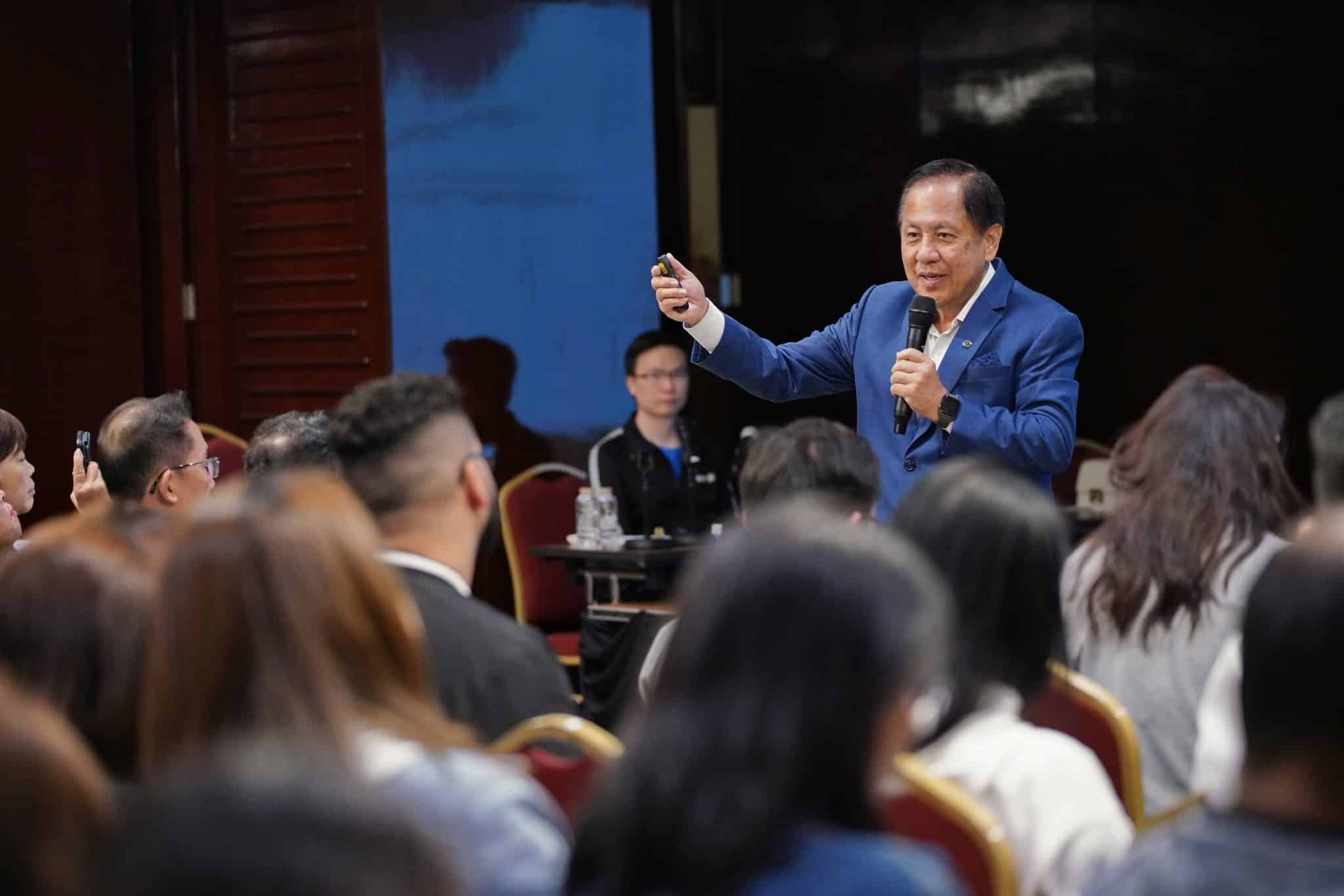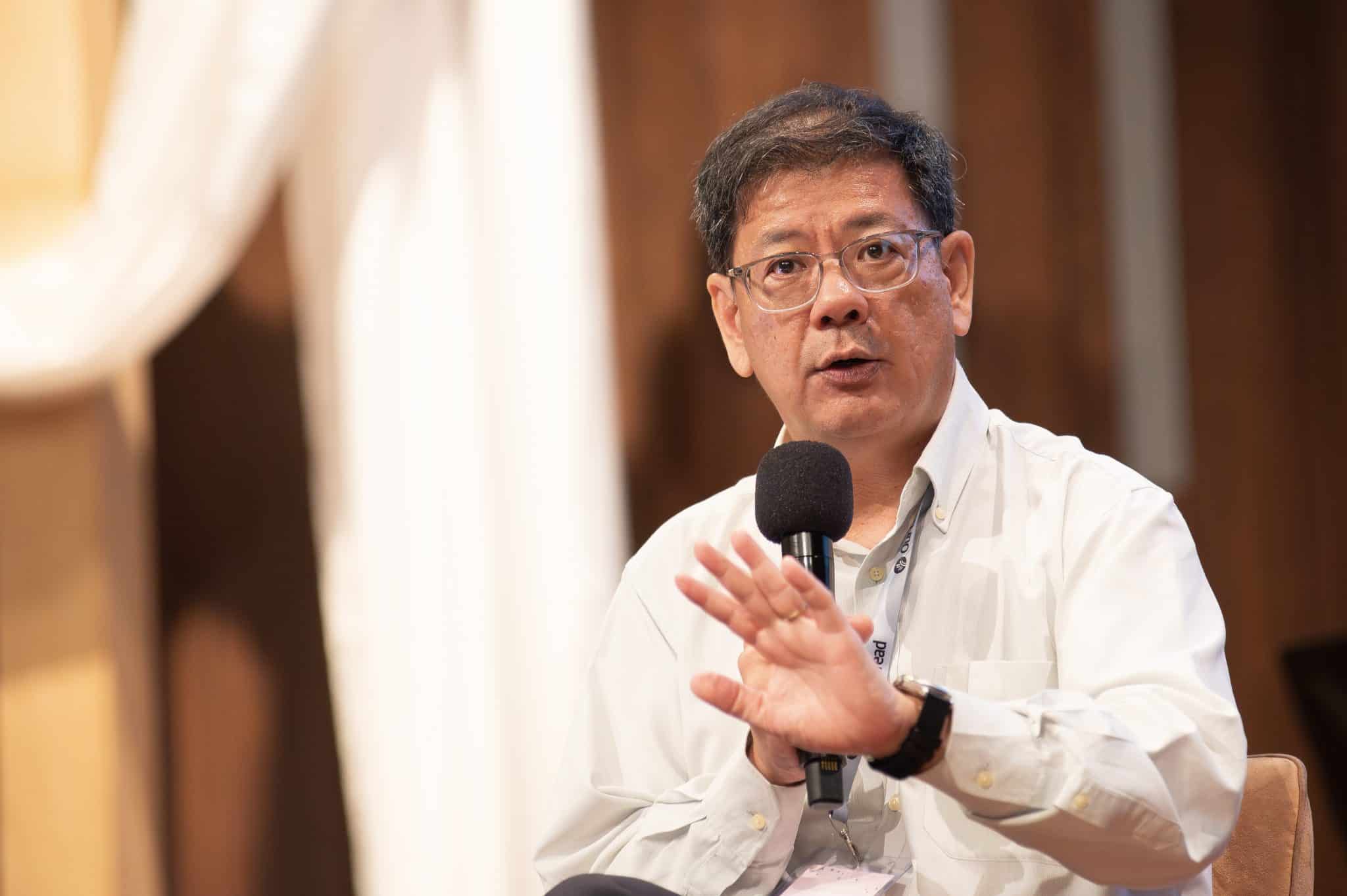“God can redeem your fatherhood even if you have thrown it away”: Salt&Light Family Night
by Christine Leow // April 4, 2022, 4:43 pm
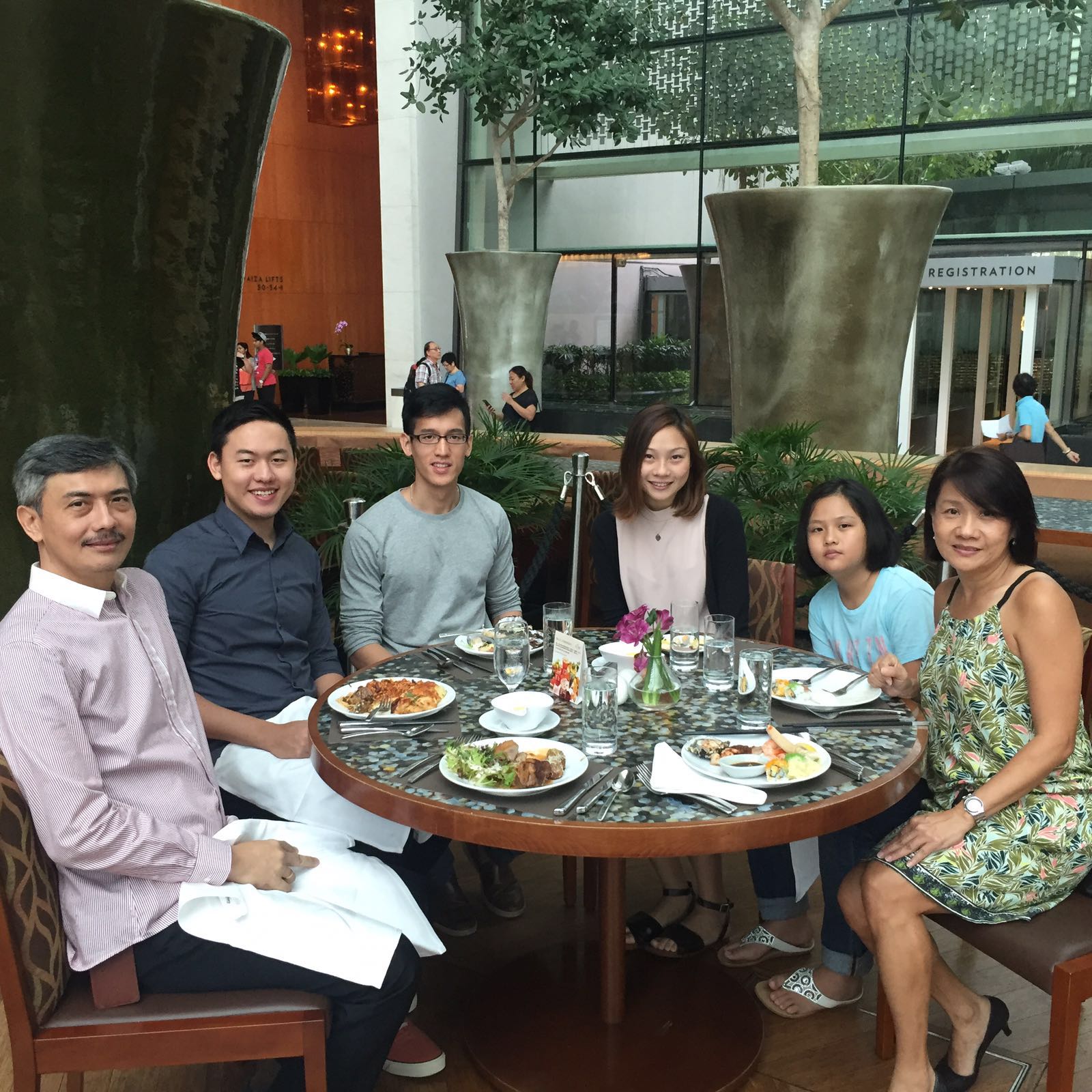
Parcsen Loke with his family. Growing up with a distant dad, Parcsen is now a champion of fathering. Photo courtesy of Parcsen Loke.
When Parcsen Loke was 10, his parents went their separate ways. Though they remained legally married, they lived their lives apart.
“I lived with my father till I got married. But it was as good as not having a father at all.”
“My elder sister and I were caught in between and my relationship with my father became suspended in animation. It froze in time and kind of stopped when I was 10,” he told the viewers of Salt&Light Family Night on the March 29 episode: From the father I am to the father I want to be.
“I lived with my father till I got married. But it was as good as not having a father at all.”
Parcsen did eventually make peace with his father. But in his growing-up years, he felt keenly the loss of a father figure.
Today, he is a fierce champion of fathering, helping dads to be better fathers. A father of three and a grandfather of one, with another on the way, Parcsen oversees the programmes at the Centre for Fathering and is also a relationship coach. He has authored a book about fathering as well, The Modern-Day Dad.
Dads for life
On the Salt&Light Family Night panel with Parcsen was fellow father, Bruce Mathieu.
When Bruce was about one, his father walked out on him and his mum. The little nuclear family moved in with his mother’s parents and her 10 siblings. Bruce was often bullied and he grew up to be “an angry child” who thought that violence could solve everything.
When Bruce was about one, his father walked out on him and his mum.
After five prison sentences, he made up his mind to change for the better so that his daughter would not grow up fatherless like he did. Today, Bruce speaks to youths about his experience with drugs and gangs to steer them away from a life of vice and crime.
Also on the panel were husband and wife, Dr Frankie and Tina Tan. The Tans have three sons aged 19, 18 and 13. Passionate supporters of families on various platforms in the community, Frankie has been active with Dads for Life since its inception. He also facilitates a group with men in various life stages and does individual mentoring. Together, they conduct couple and individual coaching with a special focus on ADHD.
Some 170 viewers logged in that night. Fathers made up the majority – 61% of viewers – while 25% were mothers. A third of the parents had teens (aged 11 to 20) while another third were new parents with children four and younger. Those with children aged between five and 10 made up about 20%.
Here was what they talked about regarding biblical fatherhood and manhood.
Which father are you?
“I became a better father with my third child. With the first two, I was struggling with my sort of fatherlessness,” admitted Parcsen.
He shared that at his interview for the position at the Centre for Fathering, he confessed that he had wanted the job not because he knew a lot about fathering but because he was hoping to learn more about it.
“And I did learn through my many interactions with fathers of all kinds.”
“He is physically there but emotionally disconnected from the child and disengaged.
He also sought out books and research papers to better understand fatherhood and fatherlessness.
“There are two main categories of fatherlessness. One is when the father is not at home, totally absent either due to incarceration, he is deceased or has abandoned the family.
“For every one of these cases, there are many more cases of the other of kind of fatherlessness where the father is present physically but absent emotionally. The father is the strong, silent type. He is the disciplinarian, not very nurturing, not very loving, not a very communicative kind of father.
“He is physically there but emotionally disconnected from the child and disengaged. It is as good as not having a father. That was my experience of fatherlessness.”
This realisation helped Parcsen in his own fathering journey.
Dr Frankie Tan credits his wife for helping him better understand himself as a father and how to improve.
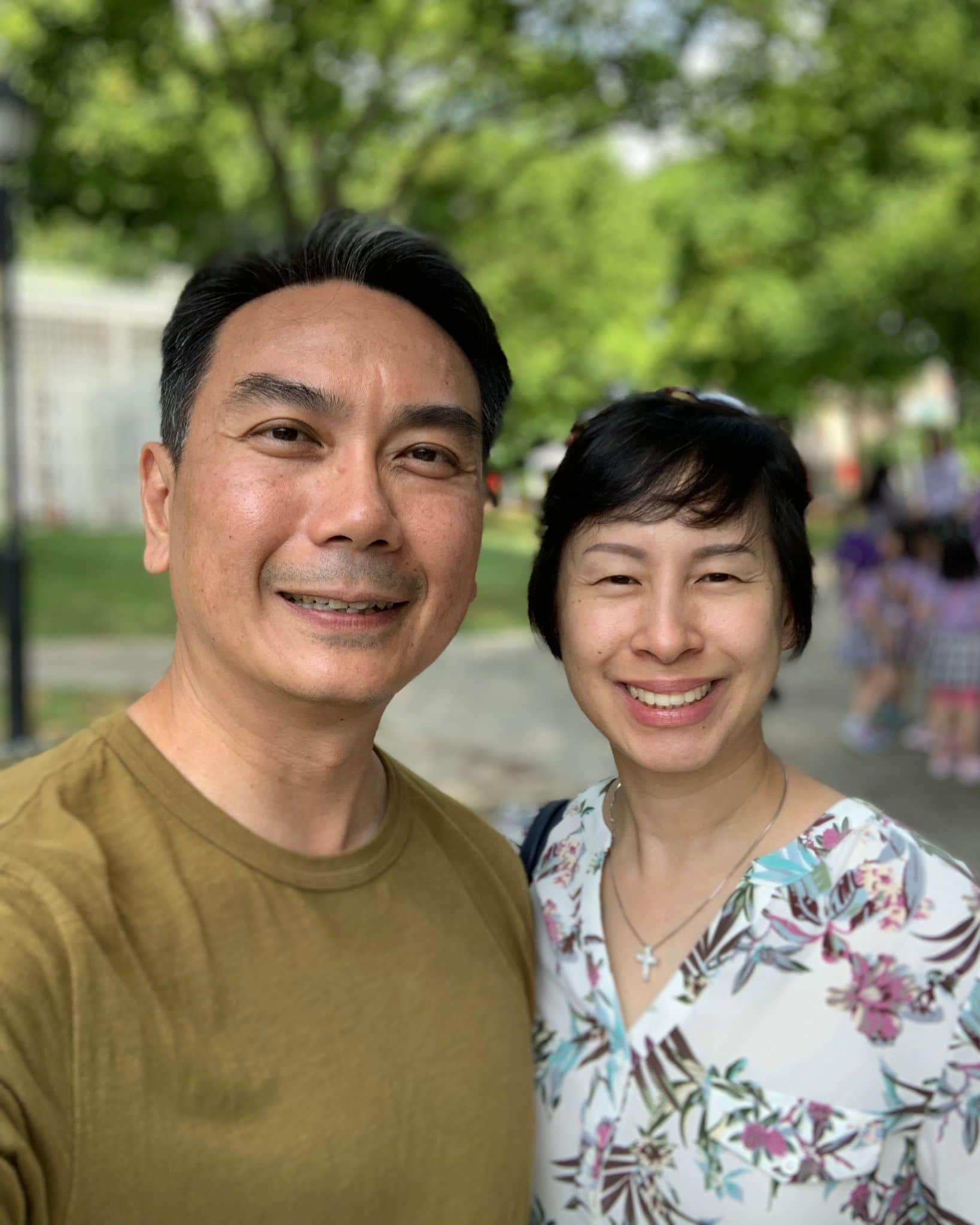
Dr Frankie Tan and his wife, Tina, believe in affirming each other in the partnership of parenthood. Photo courtesy of the Tans.
Said Dr Tan: “We often check in with one another to see how we are doing through the eyes of the children.
“In our parenting journey, we have one another to check in on and help each other to calibrate.”
His wife would tell him, for example, when he is too hard on their sons.
“Sometimes, I don’t think I am so harsh. But according to Tina, I don’t have to be physical. Once I raise my voice, it can be really, really loud and it can be daunting.”
Dr Tan would then apologise to them and “seek their forgiveness”.
“Parenting keeps us humble to continually learn and appreciate the task of being a parent.”
He also learns about fathering from his children. Each of his three sons is different. His eldest “is very verbal” and requires Dr Tan to engage him verbally even though Dr Tan himself is “more an action person”.
His second son has special needs and, therefore, communicates very differently. The youngest son is sensitive and is “struggling with anxiety”.
“So, when we parent them, we need to be aware of our approach. Certain things we can’t say to all three together.
“Sometimes, we have to talk to them separately so that they will learn and understand how we engage each one of them differently. Even though the message is the same, our approach is different.
“It is quite complex when you have a few children. But at the same time it keeps us humble to continually learn and appreciate the task of being a parent.”
“God wants us to honour Him both in our work and in the home front. That is where faith and discipleship first take place.”
Now that the boys are in their teens, the Tans have also given them “the green light to reveal to us the things we have not done so right”. They then repent and ask their children for forgiveness for their failings.
“There are a lot of things that we can learn from them,” said Dr Tan.
He admitted that it does take effort to father well, but encouraged fathers to work at fathering the way they work at their careers.
“God wants us to honour Him both in our work and in the home front. That is where faith and discipleship first take place.”
Added Parcsen: “Remember you are dads in progress. None of us has arrived. There is always room for growth.
“Fatherhood is a very good place where you will actually grow. See it as part of your personal growth and development programme.
“Each one will test you in different ways, each one will sharpen you in different areas of your life. It will grow your empathy, your negotiation skills, your ability to collaborate and communicate.
“If you allow your children to challenge you and to stretch you, you will find that you will end up a better person than when you began.”
Biblical leadership
What is the kind of father that God wants men to be?
That was one of the more popular questions raised by the viewers on Slido during Salt&Light Family Night.
Said Dr Tan: “Loving the wife is key. It’s never easy. It will take us forever to learn.”
Another tip he gave was to be proactive.
“God can redeem your fatherhood even if you have thrown it away.”
“What I learnt also is that fathers need to initiate, just like God the Father creates and initiates. So, you are always looking for opportunities to create and initiate.
“You are the source, you are the life-giver. If the source is not initiating, then down the line the rest of the loved ones under your care and charge will not receive it.”
Men’s tendency towards passivity traces its source to the fall of man, said Dr Tan. “Many men may end up being passive in the areas that they are meant to be active. Men can be active at work but can be more passive in the family front.
“So that leaves room for some wives to step in to do more and when they do more, they feel frustrated and that’s when conflicts start to arise.”
“Bring God into your manhood because He is the one who invented it.”
In encouraging men towards “authentic manhood”, Dr Tan teaches that men need to reject passivity, accept responsibility, lead courageously and invest eternally.
Taking loving leadership is “not about the capability, but about recognising the position and the role” of man as God intended, he emphasised.
Tina had a word of encouragement for fathers who may feel that they have failed: “God is a God of redemption. He can redeem your fatherhood even if you have thrown it away.
“God can redeem your relationship with your wife as well and your sense of self-worth. He can resurrect even what is dead.
“Bring God into your manhood because He is the one who invented it and He is the one who can see you through.”
Man of the house
Being the head of the household does not mean being a “dictator or becoming controlling”, said Parcsen.
“Men can have the final say but it is important for them to be very open to the points of view of their wives.”
This willingness to share power prevents a power struggle in the home.
Bruce consults not only his wife but includes his daughter in family decisions as well.
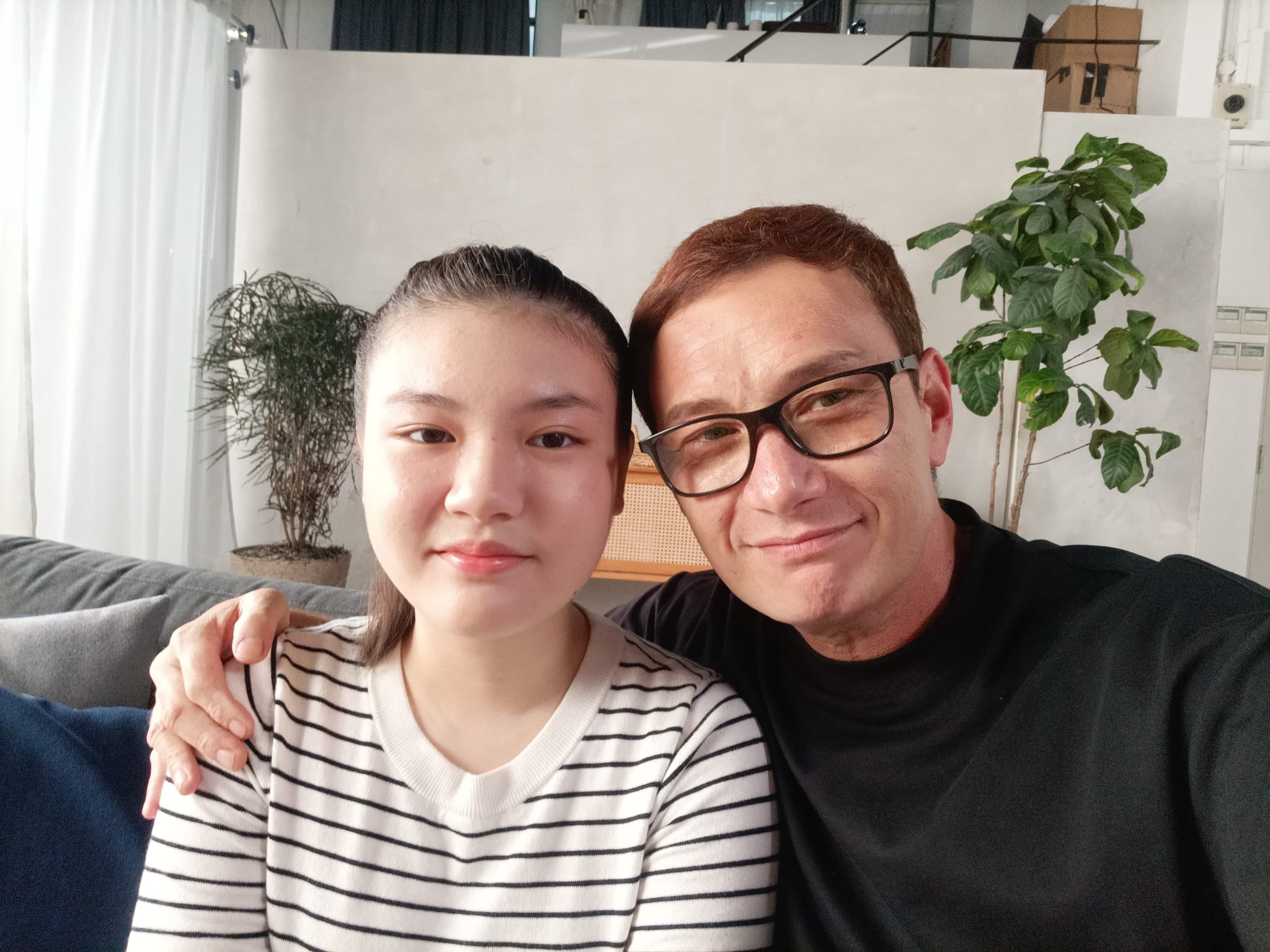
Bruce Mathieu went to prison when his daughter was three. When he was released, she was seven. That was when he noticed things in her behaviour he felt he needed to correct. Photo courtesy of Bruce Mathieu.
“If she asks me for something and the answer is ‘no’, it is up to her to persuade me. She is allowed to do it.
“But I have the final say.”
Parcsen added that should he decide to heed his wife’s advice and the situation does not turn out well, he is mindful “never to say ‘See, I told you so’”.
Drawing from Ephesians 5:25-33, Tina said that being the man of the house starts with love.
“God didn’t say, ‘Husbands lead your wives.’ He said, ‘Love your wife.’
“When a woman feels loved, she will follow you.”
“Think about what you do for self-care – the food you like to eat, the things you buy for yourself – do you thoughtfully and tenderly love your wife in that same way, thinking about what she likes, not just on Mother’s Day or her birthday, making things easier for her, really loving her as if she is your own body?
“When a woman feels loved, when a woman feels you are laying down your life for her, she is more likely to follow you.
“She will allow you the last say, she will seek your advice as well because she knows you are looking into, not just your own well-being, but into the well-being of her and the household.
“And that is something that will make your wife love you so much more.”
Showing love can be as simple as asking “How are you? How was your day?” In the Tan household, “thank you’s” are said often, even if it is for chores that are part of the person’s duties.
“Learn to praise one another in ways that matter to the other person,” said Tina.
Authoritative, not authoritarian
For Bruce, firm but loving discipline is his style of parenting.
“I believe in what the Bible says about not sparing the rod (Proverbs 13:24) and teaching them in the way that they should go (Proverbs 22:6).”
He shared about a season when his daughter was seven and prone to arguing with his wife even in public.
“It brought us to our knees, the difficulties between parenting our first two children.”
“I was brought up in a traditional Chinese family. We respect our elders. We don’t argue with our parents,” said Bruce.
For more than a year, he tried to teach her, speaking to her, debating with her, even scolding her.
“None of it worked.”
Then, one day, his daughter raised her voice to her mother in the MRT. When they got home, he took out the cane to discipline her. To make sure he was not too harsh, he tried it out on himself first.
“Then, I told her, ‘I am going to cane you because you did this.’”
After the second stroke, his daughter broke down and cried.
“I stopped. I hugged her and said, ‘I love you. But you know you did wrong. So, please don’t do it again.’
“As harsh as it may seem, it sure worked wonders. Now, I just need to give her the death stare.”
For the Tans, they had to adopt different styles to suit the very different personalities of their sons.
“I did cane my boys when they were young. The first one learnt very quickly,” said Tina.
“In those early years, we prayed every night. Just cry out to the Lord and ask Him.”
But corporal punishment did not work for her second son. While being caned made him fearful, it did not help him change.
“He didn’t learn a single thing. He really didn’t know why we caned him.”
Even reasoning did not work. The Tans had to go for different parenting courses to learn different techniques.
“It brought us to our knees, the difficulties between parenting our first two children. I always thought that you just need to be firm, give the directions and the children will follow.
“It was very humbling to have children who showed us that it’s not that straightforward. In those early years, we prayed every night. Just cry out to the Lord and ask Him.”
Raising sensitive sons
Contrary to popular belief, boys are more emotionally expressive than girls, as infants at least, said Parcsen quoting research.
It is stereotypes that have forced boys to conform to a “man box” with dictums such as “boys don’t cry”.
“I don’t belittle what they are doing or compare what they do with my own experience.”
“So, they are made to conform to certain characteristics that fit what we know as masculinity which is actually toxic masculinity.
“We are all supposed to be emotional. I used to be not emotional – my emotions were all plugged up because of my childhood.
“It took me more than 20 years to unplug my emotions. I spent a year in counselling. That was part of the process,” said Parcsen.
Bruce affirmed this: “It’s okay to be emotional. Let your son know it is okay to be emotional.
“For daughters, it is okay to be tough.”
To help fathers know how to raise sons, the Centre for Fathering has a programme called Raising Sons, which Parcsen recommended.
Dr Tan deliberately steers clear of associating masculinity with being active in sports.
“I am very much into sports most of my life. All my three boys, though they were active when they were young, as they grew older, they focused on their artistic gifts.
“I don’t belittle what they are doing or compare them with my own experience. I’ve never pushed them to do the sports I was good at or I am interested in.
“God is leading him to sense things in the world that is going to be his gifting and his ministry in the future.”
“Instead, I model what I do as a man, as a father, as a husband. At the same time, I affirm their gifts.”
Tina added: “Sensitive boys have different gifts. They can end up having the gift of evangelism or being a prophet because they are so sensitive to their atmosphere, to other people’s emotions.”
Her youngest son is a sensitive boy for whom the empathy for others became too much to bear into his tween years.
Fathers can learn from their sensitive sons.
Added Tina: “See that God is leading your son to sense things in the world that are going to be his gifting and his ministry in the future.
“Masculinity is not just about being a macho man, or being a hero, or being muscular.
“Masculinity is to be strong in the gifts that God has given you and to be able to act in those gifts with the confidence that you have, with dependence on God.”
This report is Part 2 of the Salt&Light Family Night episode on From the father I am to the father I want to be. You can read Part 1 here.
A full recording of this episode will be posted on the Salt&Light YouTube channel at the end of the week. You can watch past episodes of Salt&Light Family Night on our YouTube channel here.
RELATED STORIES:
New course launched to help churches build disability-inclusive communities
The gifts in the valley: How God shepherded a pastor’s soul after his wife died
We are an independent, non-profit organisation that relies on the generosity of our readers, such as yourself, to continue serving the kingdom. Every dollar donated goes directly back into our editorial coverage.
Would you consider partnering with us in our kingdom work by supporting us financially, either as a one-off donation, or a recurring pledge?
Support Salt&Light